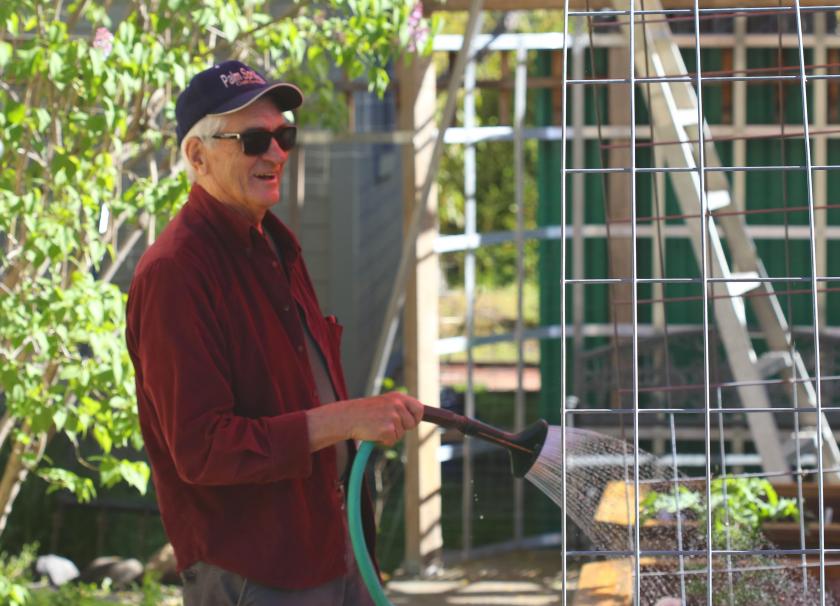
The Co-op's "Secret Garden"
Did you know the Co-op employees have a small garden on our campus? Planning and management falls on our fantastic Co-op volunteer: Henry Herting.
Below, Henry shares some background on the garden, what it’s used for, and some additional tales from over the years.
Originally, the need for a kitchen garden arose from having a kitchen classroom in which culinary classes were being held. Visiting chefs have always been invited to use the garden for any ingredients they may have forgotten or items they could use as garnish for their dishes.
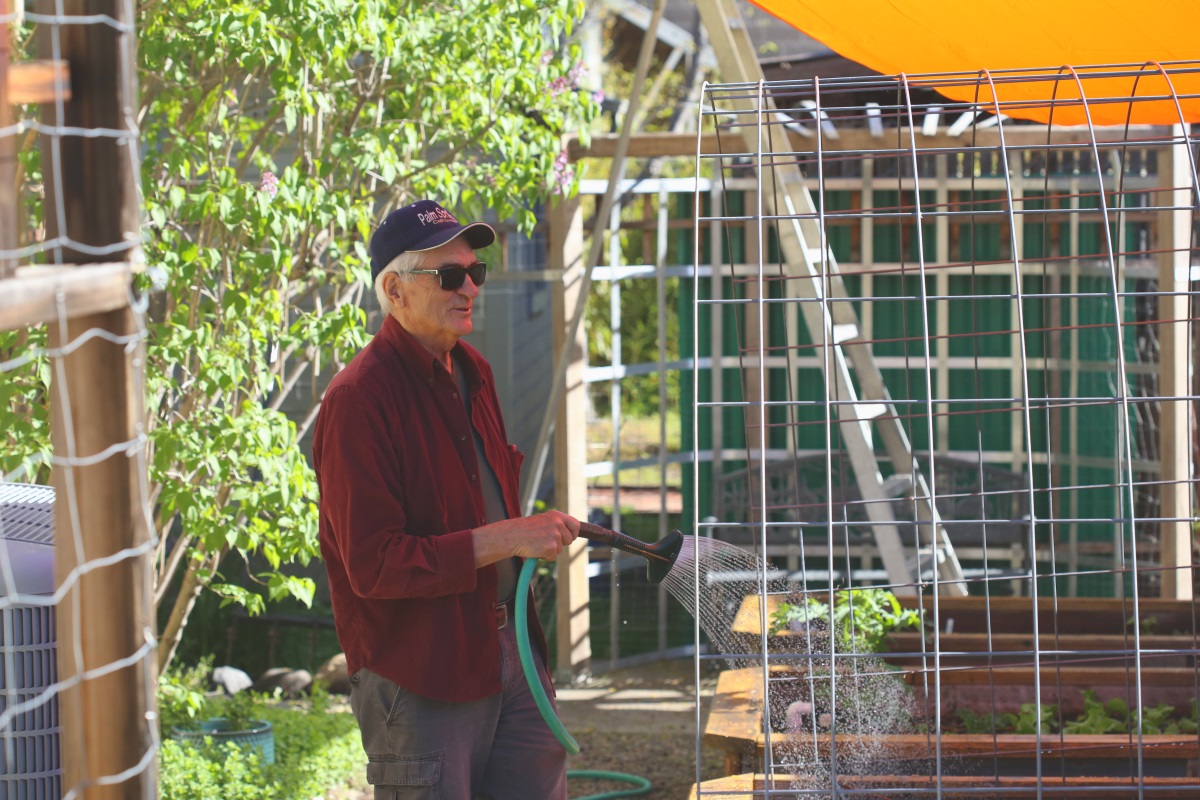
Over the years as the garden has improved in amendments, it has taken on its primary purpose as a refuge for AFC employees trying to enjoy a quiet lunch away from the busy activity of the store or as a private place to make a telephone call.
We had to enclose the area with a deer fence as the local deer were gorging themselves on our offerings. There was also a beautiful cat that thought the four raised beds should be used for his purposes only. He has, happily, been chased away by an occasional handful of critter-ridder.
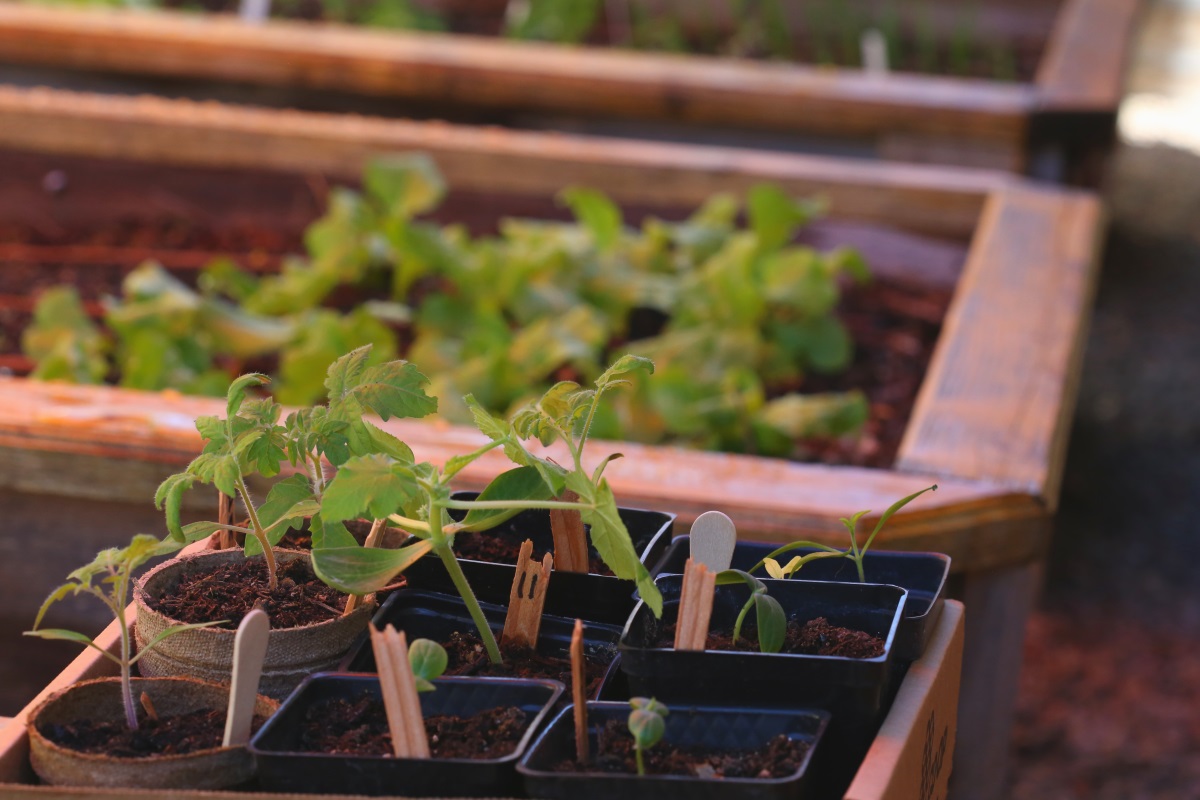
We’ve added seating in the form of cedar rails at the tops of the raised beds and two benches: a rocking bench that we covered with a trellis, and a larger oak bench modeled after the one at the old Eagle Point Grist Mill (which burned to the ground one Christmas morning, taking the bench with it).
We’ve always been charged by the originators of the garden to do everything organically. If we use seeds, they have to be organically raised seed (in our case, from Siskiyou Seeds or Territorial Seeds). If we plant starts, they will be organically grown in organic soil mediums. Even the green paint we’ve added to the big trellis this year is old-time milk paint, appropriate for growing vegetables.
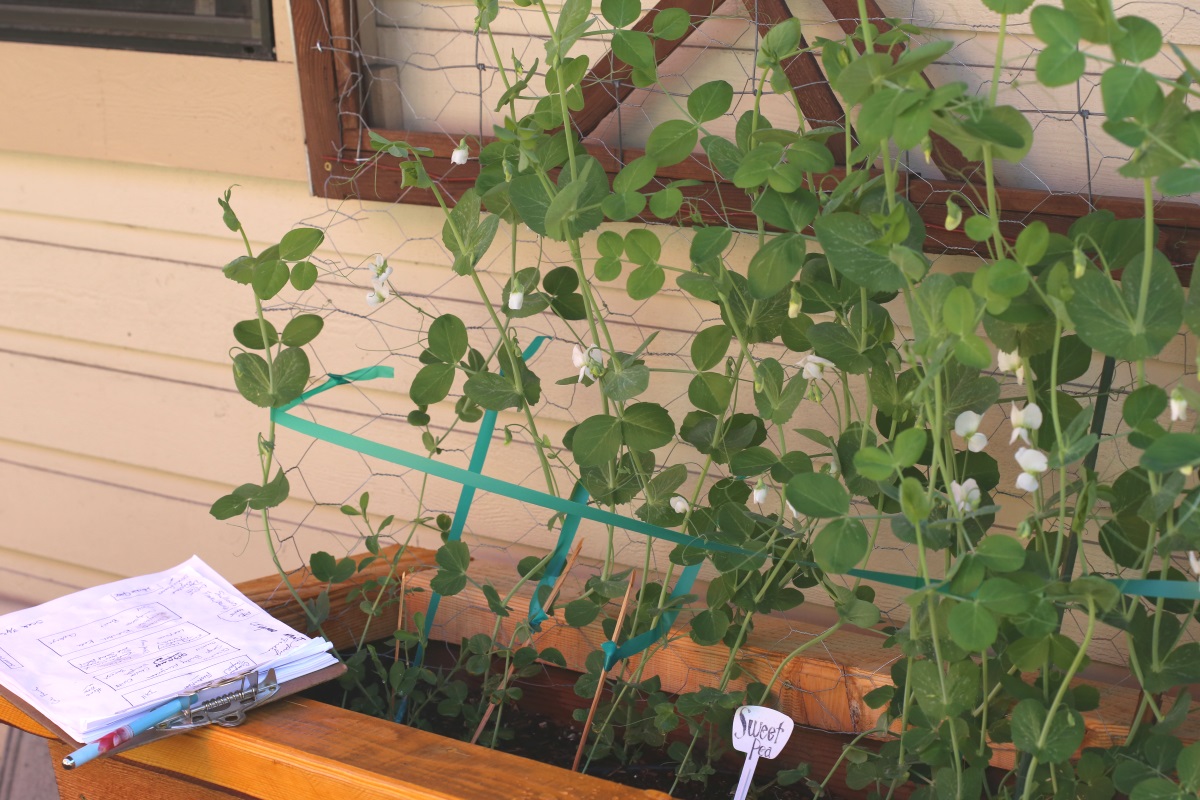
The garden isn’t a smoke break spot either. Plants are living organisms and it has been repeatedly proven do not do well with second hand smoke. They breathe in and out as we do.
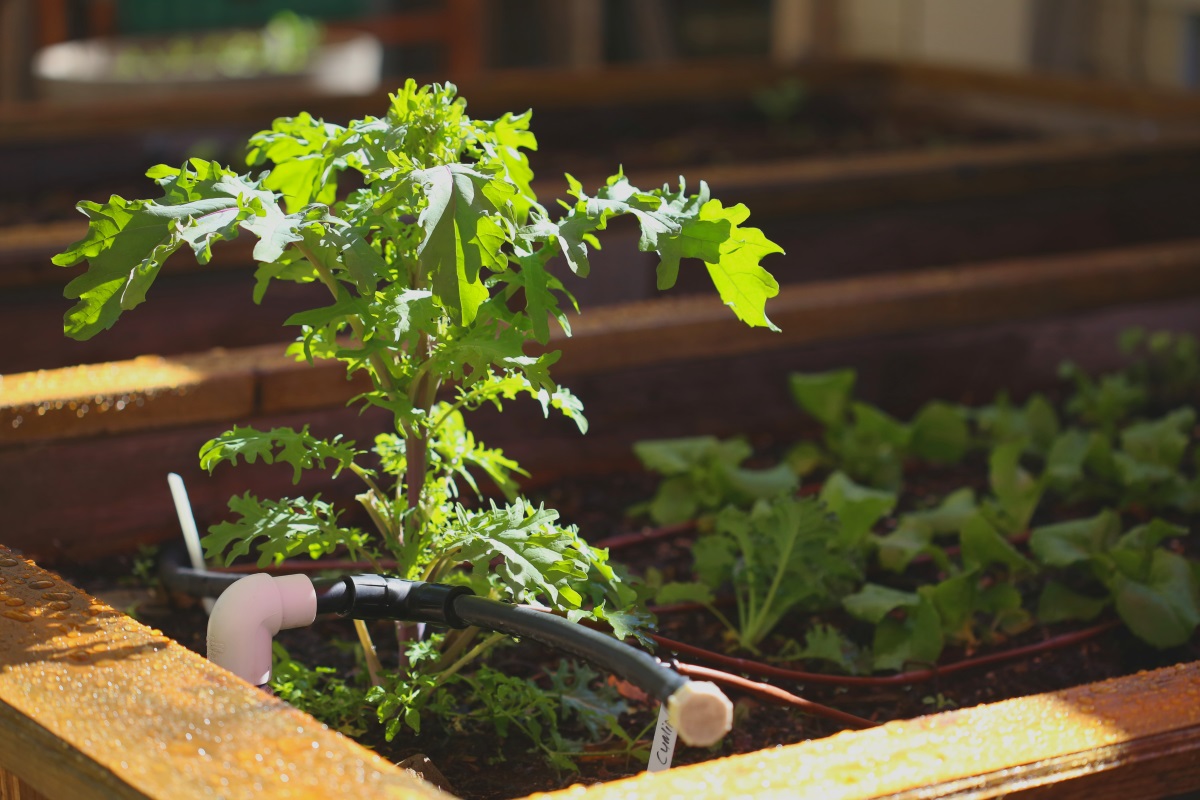
Our big charge in the summer months has always been the Kids’ Camps, happening in late June this year. Currently, we are adding a lot of plants to draw in the pollinators in our quest to become a Certified Pollinator Garden. We hope also to have some ladybugs for the kids to release - it’s an experience that enraptures kids and connects them to the soil food web around them.
More Co-op News
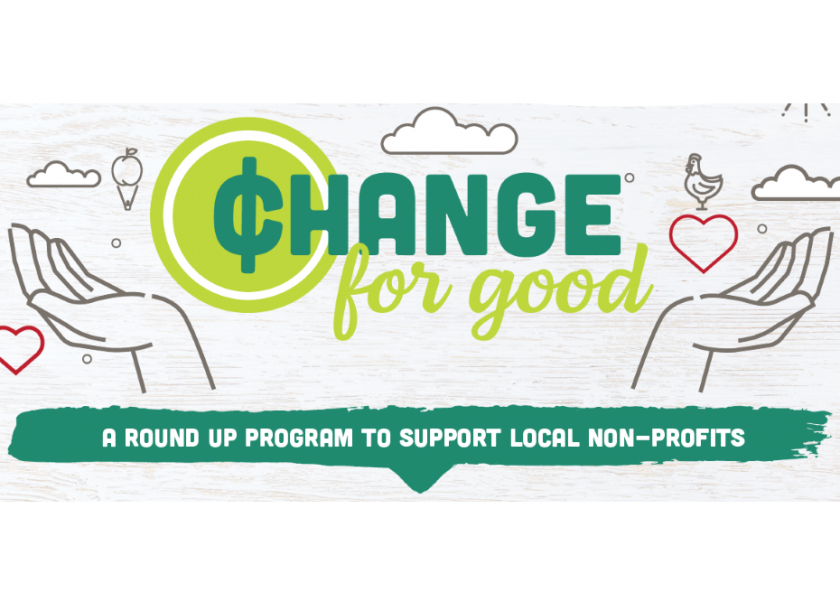
Rounding Up in October
Part of what makes co-ops unique are the guiding 7 Principles of Cooperation. One of the seven that is felt strongly in Ashland is "Concern for the community" - and that's why the Co-op is offering a new way to give back to our community for the month of October. When you pay at the register, you can round up your total to the nearest dollar. For example, $11.68 becomes $12, and $0.32 is donated.

Win 2 tickets to "Chicken Done Simply" cooking class
Find out how fun and educational Co-op cooking classes are! Sign up below for the chance to win two free seats (for you and a friend or loved one) at the next class, "Chicken Done Simply" with the Co-op's own Michelle Guerrie.
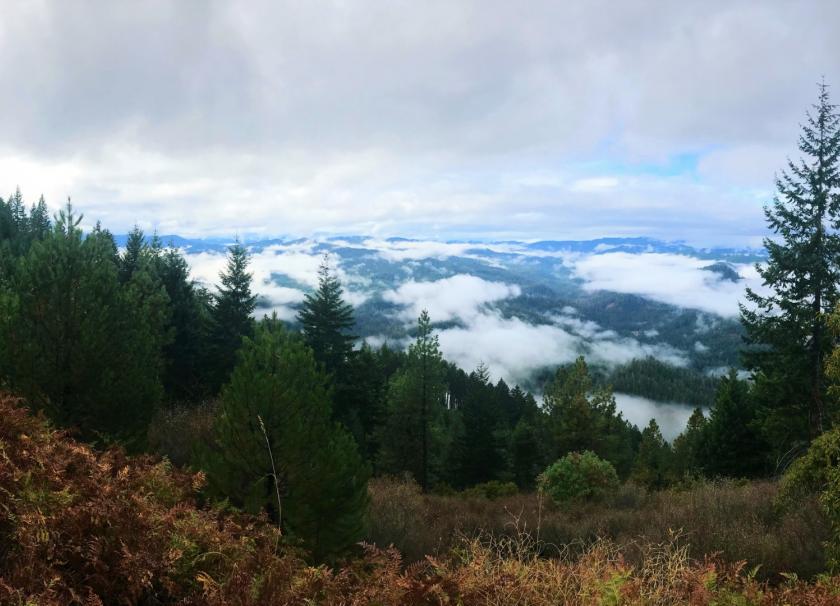
Fall Staff Picks
Thanks to alpine trails and shaded valley creeks, outdoor recreation is year-round in the Rogue Valley. But fall usually makes for more frisky feet, so we asked Co-op employees for their favorite fall activities and recommendations for what they grab before they head out.

Applegate products joining Co-op Basics
Just in time for the school year, Applegate products are being added to the Co-op Basics program! The Co-op carries a variety of Applegate products, like sliced deli meat, cheeses, bacon, and sausages. Now as part of the Co-op Basics program, you’ll be saving up to $2 on Applegate products across the store, every day.

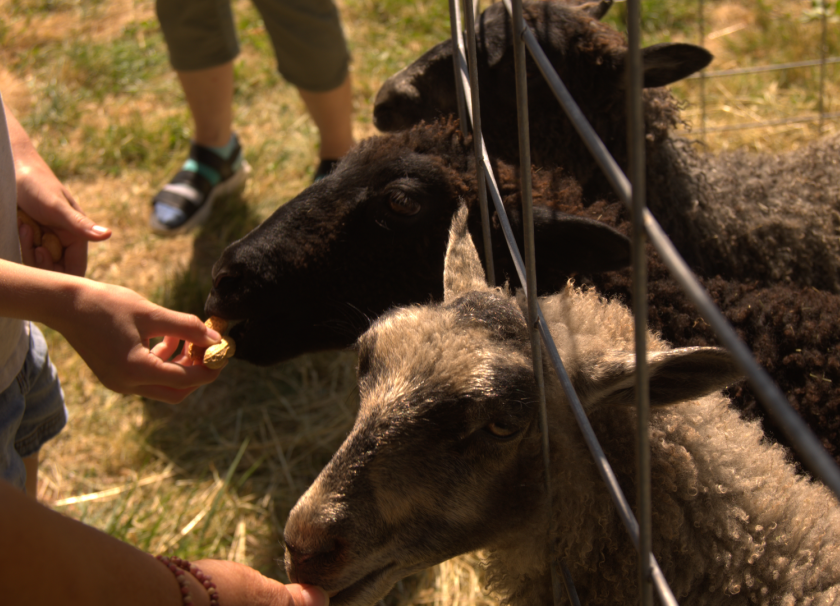
2019 Farm Tour Recap
Another successful farm tour is in the books! With 30 farms this year, visitors could see how bigger farms work, like Herb Pharm, Fry Family Farm, and Rogue Creamery, while also experiencing the joys of smaller farms, such as Turning Point Farm, Fox Run Farm, and Daily Blessing Farm.
Visitors of all ages enjoying Goodwin Creek Gardens
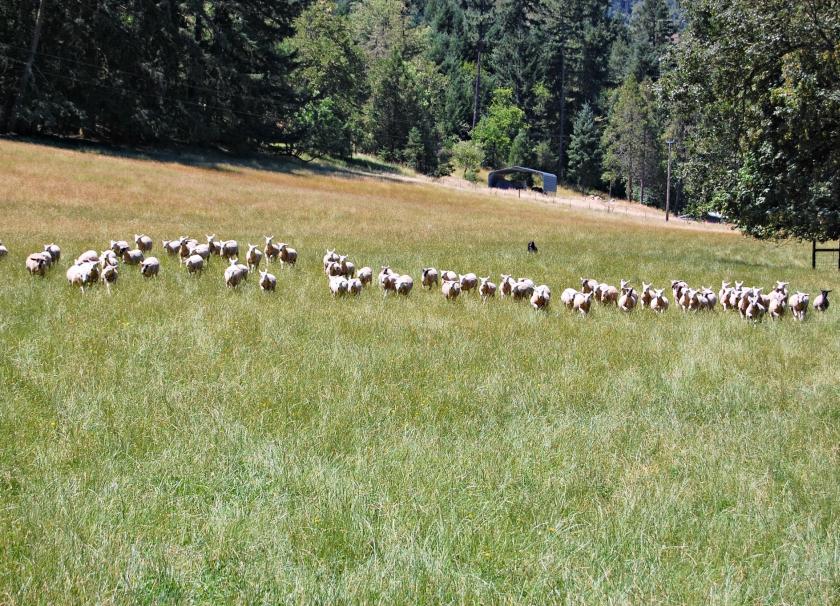
AFC Celebrates 20 Years with Magnolia Farms
This year, the Ashland Food Co-op proudly celebrates their 20 year partnership with Magnolia Farms. Their pasture raised, no antibiotics, no hormones lamb is a staple in the Co-op Meat Department. Magnolia Farms is graciously donating the lamb for our August First Friday in celebration of our long standing partnership.
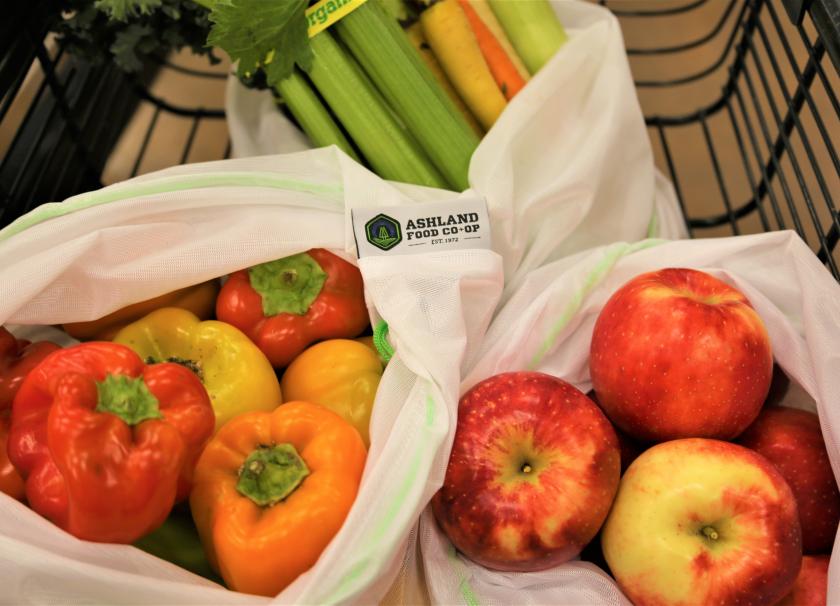
Compostable Bags
The Co-op has been asked if compostable plastic bags are a viable alternative to the standard plastic bags offered in the produce and meat departments.
For several reasons, compostable bags are not in line with the Co-op’s goals and standards.
Not compostable at home
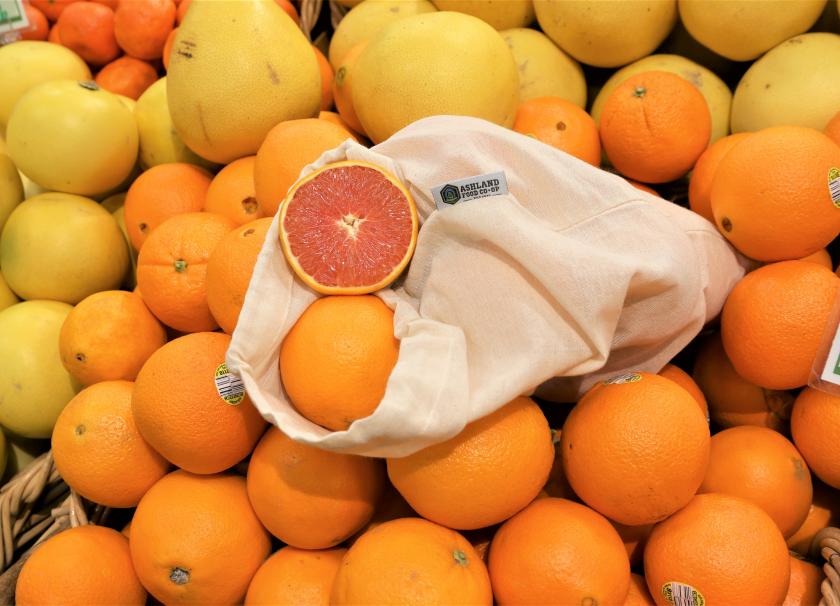
Sustainability Update: Energy efficiency and zero waste
Energy Efficiency
We are happy to announce that we are a member of the Energy Trust of Oregon’s Strategic Energy Management program. This is a free program available to customers of Avista and Pacific Power, which offers awesome incentives including a paid internship!
Community Grant Recipients 2019
The Ashland Food Co-op donated over $29,000 to 28 local nonprofit organizations through their Community Grant Program.
The Community Grant program is the focus of one of the fundamental Cooperative Principles, which all cooperative enterprises follow. Our Community Grant Program supports Principle 7, Concern for Community.
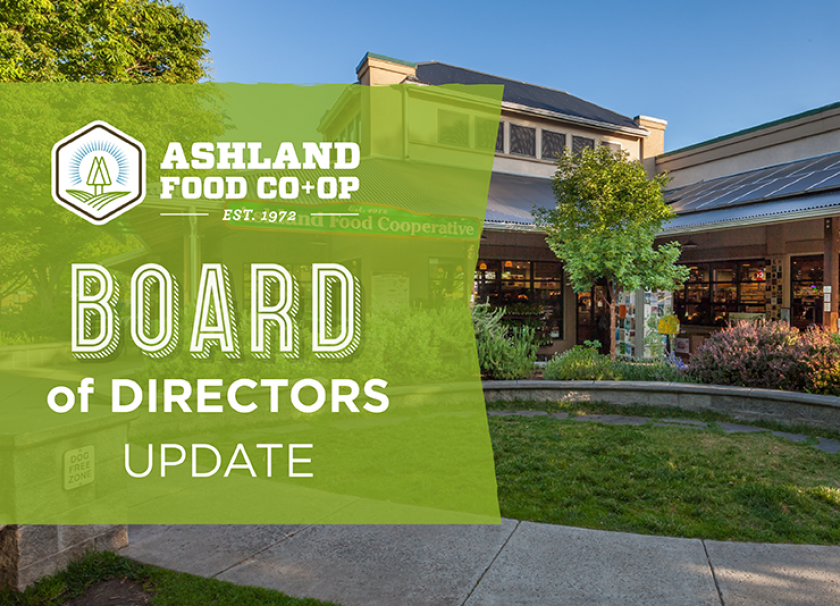
Meet the 2019 Board of Directors
Congratulations to Annie Hoy, Melina Barker, Lisa Beam, and Steve Bowman for their election to the Board of Directors! We were delighted to have such a strong slate of candidates to fill our four vacancies. You can read more about each new director here.

How to stay sustainable with paper products
Have you thought about how sustainable your paper home products are? While the use of single-use plastics has (rightfully) been criticized, some products are made to be single-use - like toilet paper, paper towels, and napkins. With these products, it’s best to examine sustainability by looking at what goes into their production.

2019 Owner Coupon / Benefits Calendar
Hey Co-op owners - if you're wondering if it's a $5 off or 10% discount month... you can reference this calendar.
These benefits are available to all Co-op owners. If you're not an owner yet, you can sign up online!
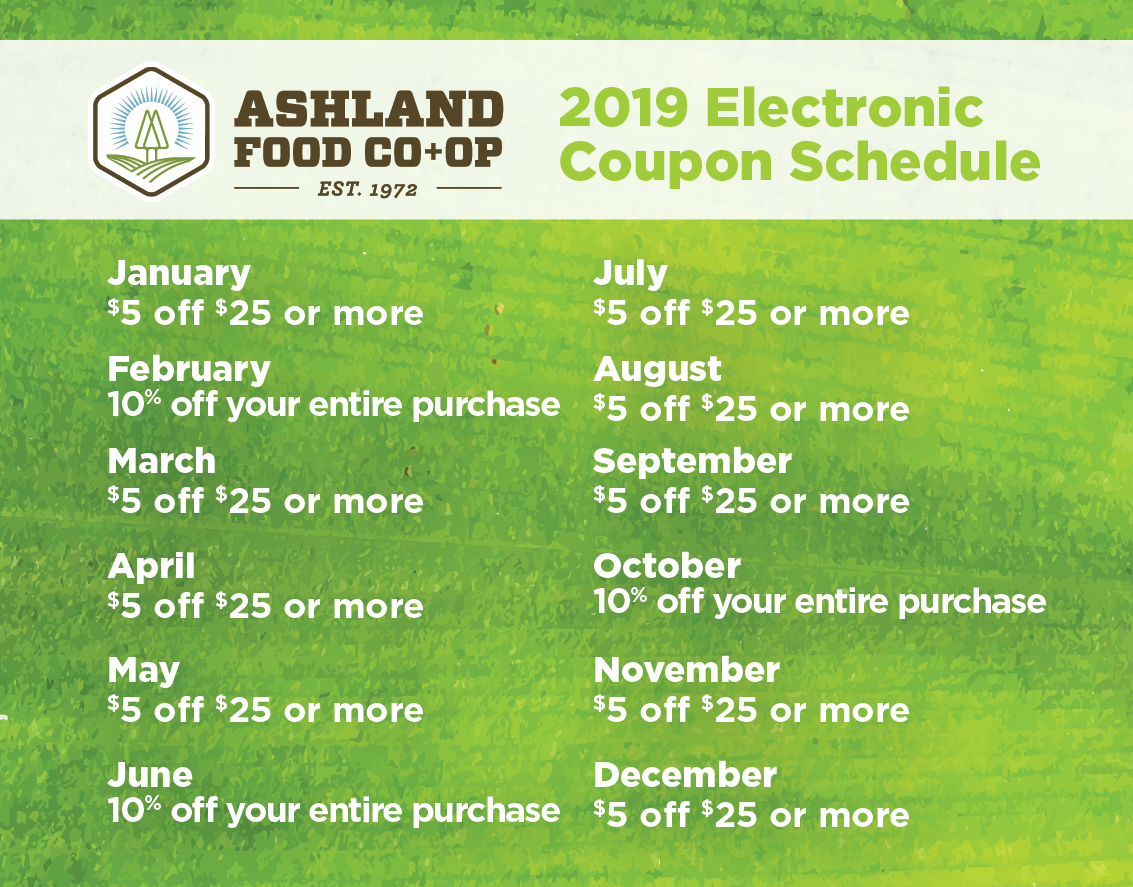
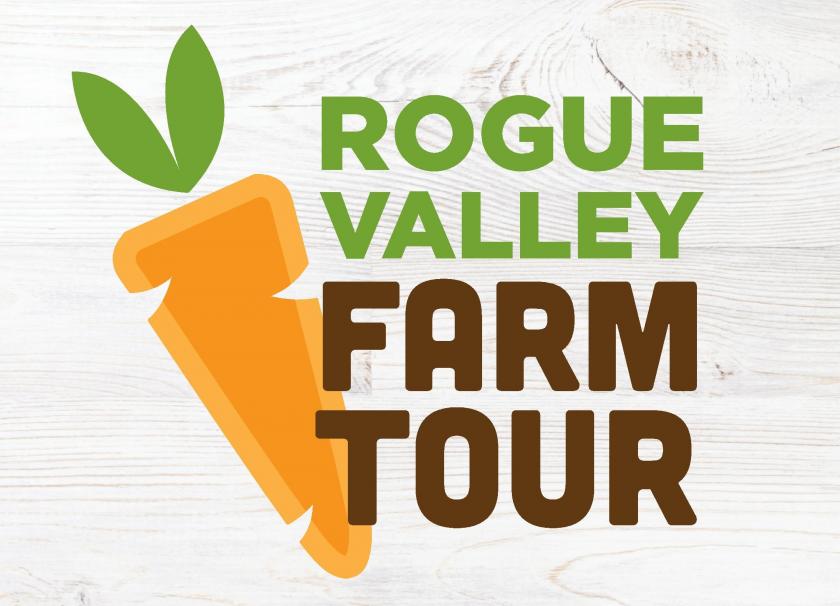
Farm Tour on the Shelves
The Farm Tour shines a spotlight on Southern Oregon - it represents the full range of products grown in the Rogue Valley. The Farm Tour isn't until July 14, but here's a list of tour activities for participating farms that are also on the shelves at the Ashland Food Co-op. Get an early taste of quality local goods!

Planning for Summer... and Smoke
By Emile Amarotico, General Manager
If we are lucky, we’ll only have another seven week smoke intrusion this summer. If we are not, we could be the next Paradise. In less than 13 hours, last November’s Camp Fire wiped out nearly 19,000 structures and more than 80 lives. With community help, we were able to raise over $14,000 to support Chico Natural Foods Co-op’s efforts to feed some of the nearly 20,000 displaced Paradise residents.
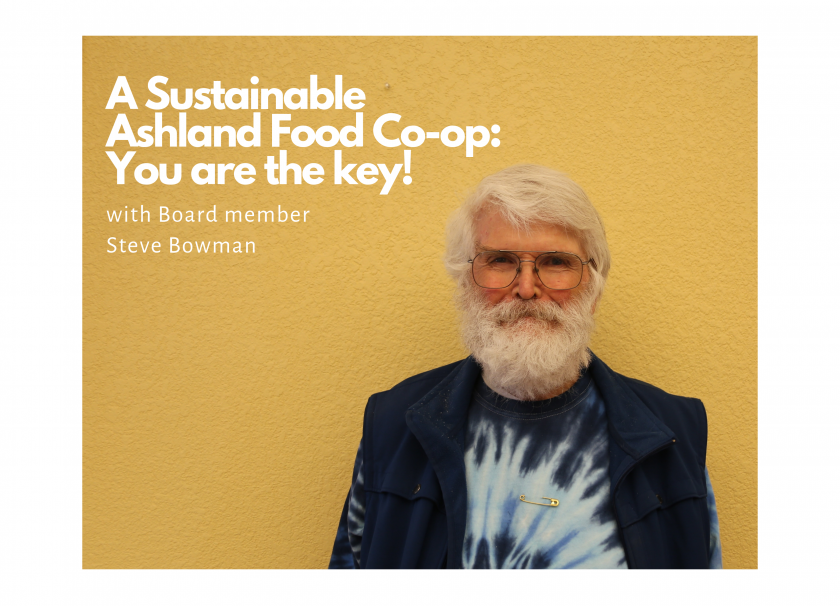
Sustainable Ashland Food Co-op: You are the key!
By Steve Bowman, AFC Board Director
